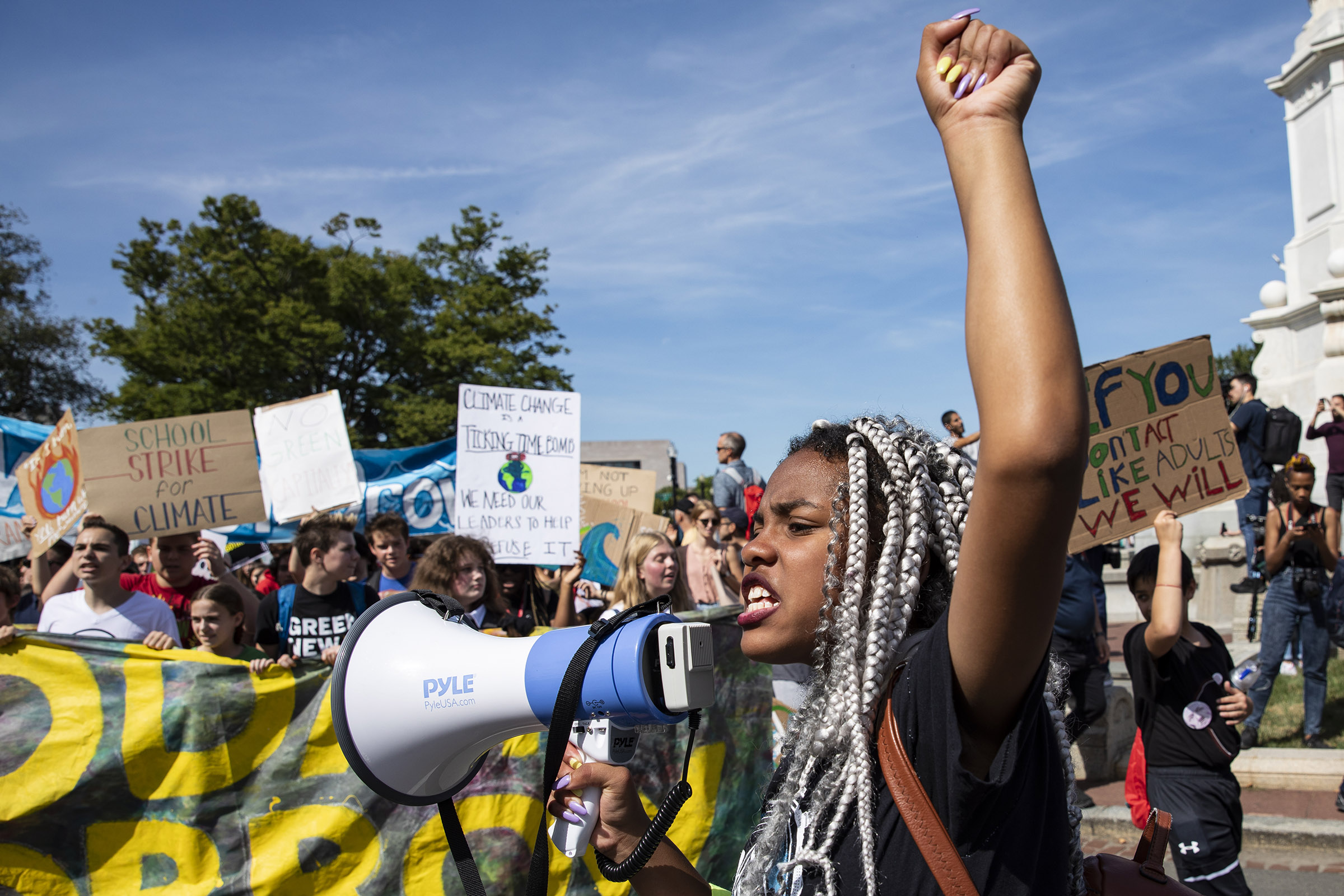
This year marks the fifth anniversary of the Global Climate Strike, initiated by the Swedish activist Greta Thunberg, with events scheduled for September 15 and 17. By the time of going to press, the strike has started in several countries and Thunberg’s Twitter page has posted strike pictures from Bangladesh and Uganda.
In 2023, the movement’s demands encompass divestment from both current and new fossil fuel ventures, equitably distributing the responsibility across society, investing in community-owned renewable energy initiatives, and providing reparations to communities impacted by the climate crisis.
The protests, coordinated by the Fridays for Future organization, have experienced rapid expansion. According to their records, the inaugural strike in August 2018 drew approximately 27,000 participants from 150 countries. By the following year, around 3.8 million people demonstrated across 3,800 cities, marking it as potentially the largest climate protest in history. However, the actual numbers may surpass these figures, as Fridays For Future may not receive all attendance estimates from local organizers, says a report in the Euronews.
The impact of these protests extends beyond the political realm; they have also inspired researchers across Europe to participate and further their scientific endeavours. One example is Audra Balundė, a behavioral scientist who joined the protests in Vilnius, Lithuania. She now heads the Environmental Psychology Research Centre at Mykolas Romeris University. Her motivation was simple: to support the efforts of young activists and express her solidarity. She believed it was essential to demonstrate that researchers stand united with protesters, especially young ones, and support their actions.
Attending the protests ignited Audra’s passion for continued research, including exploring the relationship between people’s moral values, identity, and their commitment to environmental conservation. She is also collaborating on the EU-funded project Biotraces, which seeks socially-inclusive approaches to enhance local ecology. For instance, they are studying what factors might hinder local communities from accepting river restoration projects in their residential areas. Earlier research by Audra indicated that younger generations feel a stronger sense of responsibility toward environmental conservation.
In Brussels, Adalgisa Martinelli, a researcher from Italy, joined a local demonstration in 2022 aimed at improving the city’s green spaces. The demonstration had clear goals, such as adding more plants and flowers to the urban landscape. Adalgisa was impressed by the positive message and specific objectives of the group, which fostered a sense of community without conflict. This approach also seemed to resonate with local authorities, leading to noticeable improvements in the city’s parks and green areas. Adalgisa observed that these gatherings influenced people’s attitudes, inspiring them to take individual steps, such as walking or biking to work, that contribute to a greener environment.
As for the effectiveness of climate protests, researchers like Ishan Bipin Ajmera believe they have raised awareness and influenced public discourse on climate issues in Europe. However, the impact varies in different regions, such as India, where debates center around economic development versus environmental protection. Nonetheless, these discussions still raise awareness and concern about shifting weather patterns, global calamities, and governmental policies.
Despite the positive influence of climate protests, some researchers are concerned about declining participation post-COVID. Last year’s strikes saw fewer global participants, with around 70,000 people demonstrating on a single day, partly due to fewer reports submitted by local organizers. This decline has led some to speculate about a sense of resignation regarding the issue. Researchers like Benoit Durillon, who participated in an earlier Climate Strike, appreciate the creative slogans and placards that reflect the passion of the protesters and foster a sense of unity.
Researchers also see these protests as an opportunity to communicate their work to those interested in the topics raised by the movement. They can provide guidance and share their informed perspectives, even if they choose not to participate directly. For Benoit, engaging in everyday debates on climate-related issues is a form of protest in itself, ensuring that the discussion remains alive and relevant. (IPA Service)
The post Climate Strikes Bring Gradual But Definite Change In Global Environment first appeared on Latest India news, analysis and reports on IPA Newspack.


